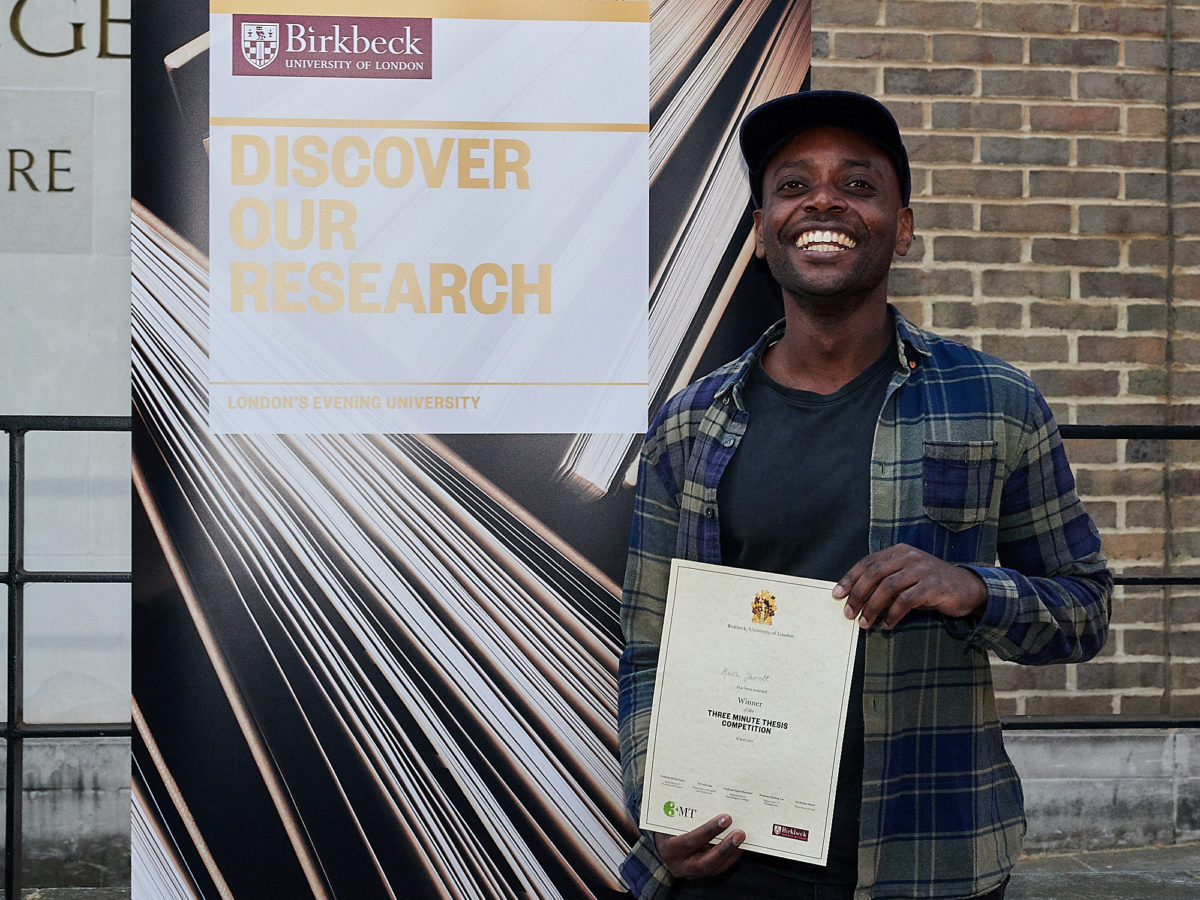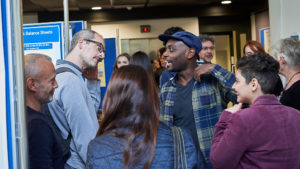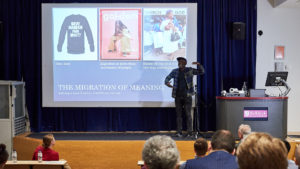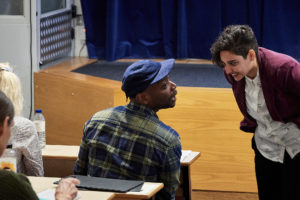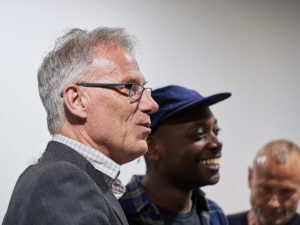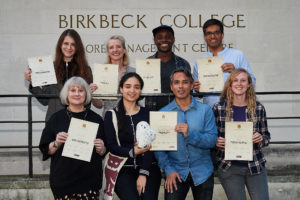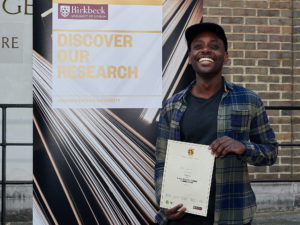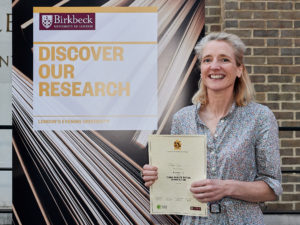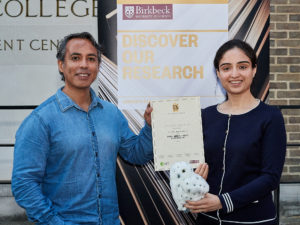Raul Valdivia
Three Questions for Three Minute Thesis
As one of the People’s Choice winners for 2018, how would you describe your experience of the 3MT event?
It was tough! I had practised my speech several times, but once I was in front of the audience I got too nervous and started to forget some bits, so I had to improvise. I guess I wanted to sound calm but passionate about my work at the same time, which is always difficult to get it right. I am glad people in the audience got a clear idea of what my research was about (analysis of photographs taken by slum dwellers in Lima). Overall, the 3MT event was a good experience and very well organised, I can now explain my work in less than three minutes!
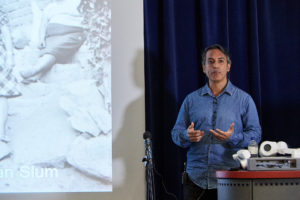
Did you submit a poster for the Poster Presentation, if yes/no what did you think of the posters?
Yes, I did. I put lots of effort and creativity into the design of my poster. Coming from the School of Arts, I knew the standard format for posters was not going to suit my needs. The research poster structure is very much based on a cause-effect approach to the study of natural phenomena and social relations. I personally disagree with such positivistic model, even though I have a psychology and sociology background, so I wanted to tell a story in my poster in a way that could give viewers a sense of what it is that I am exploring, my findings so far, and the contribution my study makes to society. I anticipated most poster judges were going to be drawn from disciplines different to mine (visual studies), so I used some of the standard poster sections to keep it within the traditional assessment criteria. Sadly, I did not win, but many people complemented my poster highly, which is always a good indicator and rewarding of course.
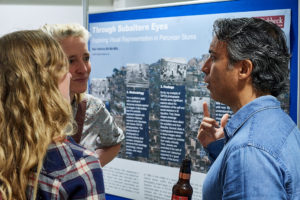
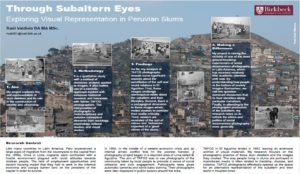
Would you recommend taking part in 3MT to other PhD students next year?
Absolutely! If anything, it is a good opportunity to think about what you are doing in your research and how to best explain it to people who may not be familiar with your topic. Besides, you could win a good cash prize!
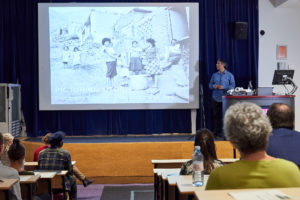
Pavni Kohli
When I first heard of the Three-Minute thesis challenge, I had just entered the writing phase of my PhD after an exciting year of field work and was feeling as if I was losing steam. Having presented my research at a conference in the previous few months I realised the exercise was very helpful in refocusing my thoughts. Within this context the 3MT seemed like a much-needed opportunity to step back and regain some clarity and enthusiasm for my research.
The first thing I did was look up the videos of past winners from Birkbeck and other universities. Although it seemed challenging to present three years of work in three minutes, I decided to participate because the PhD students looked like they were having a lot of fun.
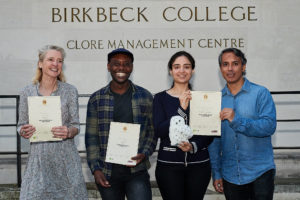
Indeed, the whole experience was hugely enjoyable, starting from the training workshop which was also a great learning experience. We learned ways to capture the audiences’ imagination, communicate our ideas quickly and clearly along with breathing and body language techniques. My favourite part was meeting PhD students from other departments and learning about their projects. Their passion and enthusiasm were infectious, to say the least and I felt energised and determined to give my best. The interactive nature of the workshop meant that we could test our presentation styles and get immediate feedback about what worked and what didn’t.

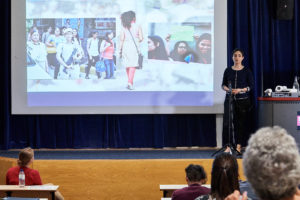
This camaraderie and infectious energy carried onto the evening of the challenge where I was happy to see so many presentations and posters on such a range of fascinating topics. The atmosphere was incredible with an almost full auditorium and a warm, cheerful and sporty audience. I was very nervous but the supportive atmosphere made me feel at ease and my nervousness melted away.
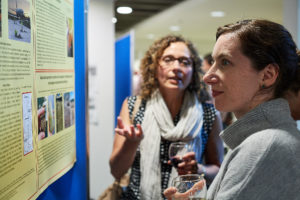
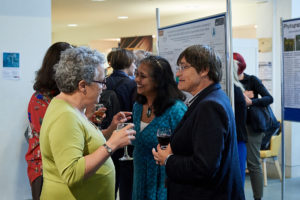
It was an honour to be chosen the people’s choice winner. For me, the three-minute thesis challenge is all about connecting with the audience, communicating my research concisely and clearly and conveying the passion I feel for my work. I felt great satisfaction at achieving these goals and was delighted that the audience voted for me.
I highly recommend participating in the 3MT to other PhD students as its not only a hugely enjoyable experience but is also a tremendously powerful exercise in honing presentation and communication skills and regaining clarity and focus.
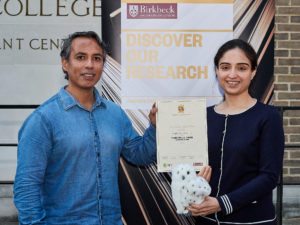
Raul (Department of Cultures and Languages) and Pavni Department of Geography) took joint place for the People’s Choice Award this year.
Watch Raul’s talk “Picturing Utopia: Photography against the odds in a Peruvian sunset” here.
Watch Pavni’s talk “Looking beyond fear in Delhi: Mapping women’s everyday life” here.

